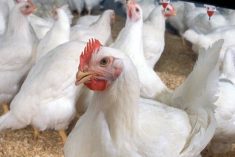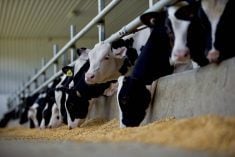A link has been established between several cases of human illness and consumption of Butcher’s Choice burgers from Ontario-based Cardinal Meat Specialists.
The Canadian Food Inspection Agency confirmed the link in a Dec. 17 news release, connecting “a small cluster of illnesses” in Ontario and Alberta to products that came from the plant. Five illnesses have been reported: two in Alberta and three in Ontario. All occurred between early September and late November. One person was hospitalized, but all those made ill are either recovered or recovering, according to the CFIA.
Read Also

CBOT Weekly: China, shutdown guiding the market
The United States grain and oilseed markets are currently dominated by two factors, said Ryan Ettner, broker with Allendale Inc. in McHenry, Ill. Ettner said those are the absence of a trade deal with China and the ongoing United States government shutdown.
Two products from the plant have been recalled for potential contamination with E. coli 0157:H7: Butcher’s Choice Garlic Peppercorn beef burgers and Butcher’s Choice Hickory Barbecue beef burgers, which carry a best before date of Feb. 10, 2013, and Cardinal Select prime rib beef burgers, with a best before date of July 31, 2013.
Consumers can either destroy the product or return it to the place of purchase.
The CFIA said the Cardinal plant uses materials from a number of sources in its products and it is investigating spices, domestic beef ingredients and beef ingredients imported from New Zealand and Australia in efforts to find the source of the E. coli contamination.
More information and updates to the ongoing investigation are available on the CFIA website.















